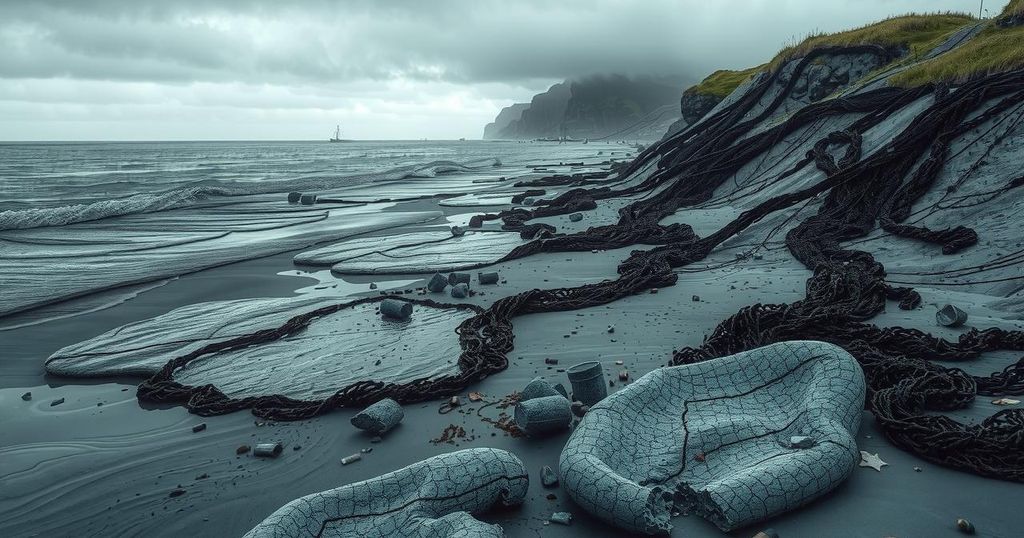Peruvian Fishers Seek Justice After Devastating Oil Spill
A recent oil spill from the New Talara Refinery in Peru caused extensive damage, prompting affect fishers to seek additional compensation. Despite receiving some financial support, local fishermen deem the compensation inadequate. The ongoing environmental and economic repercussions have led to protests and heightened concerns regarding the company’s accountability and the sustainability of remediation efforts.
On December 22, 2024, an oil pipeline leak at the New Talara Refinery in northern Peru resulted in significant environmental damage, spilling oil that spread over 10 kilometers of coastline. The Peruvian environment ministry subsequently declared a 90-day environmental emergency, halting activities for over 4,000 artisanal fishers who rely on the affected waters. After three months of economic disruptions, affected fishers have returned to work, but they assert that the compensation received from Petroperú, the state-owned refinery operator, is inadequate and seek further support.
Fishers experienced the devastating impacts of the spill immediately, as oil contaminated their nets and gear. Petroperú initially reported a minimal leak of 0.9 barrels; however, it was later revealed that the actual amount was much higher. The environmental emergency, declared on December 25, paralyzed local tourism and fishing, leaving many fishers without livelihoods during a critical period. Despite resuming work in an increasingly polluted environment, they express dissatisfaction with the compensation package offered by Petroperú.
Artisanal fishermen such as Tulio Chapilliquen shared experiences from their childhood, recalling severe oil spills prior to any regulatory oversight. Although improvements have occurred since then, Chapilliquen noted that the recent spill resembled those of the past. Reports indicated that the oil not only contaminated beaches but also continued to affect the surrounding aquatic habitat, with seasoned biologists confirming that hazardous substances remained despite the visible cleanup efforts.
Cleanup operations commenced after the environmental emergency was declared, with Petroperú employing locals for beach remediation. However, concurrent anomalous tides further exacerbated the situation, causing significant damage to fishing vessels and local businesses. Fishermen faced compounded hardships during this period, leading to catastrophic losses, including newly refurbished vessels.
Consequently, the aftermath of the spill created a sense of urgency among local fishers to seek adequate compensation. A report indicated that post-disaster support was lacking, as the Talara fishing community was left to rely on each other for sustenance. Calls for financial acknowledgment of damages spurred organized initiatives, demanding a more just response from Petroperú despite the company’s claims of fulfilling its obligations.
The compensation offered by Petroperú fell short of the monetary assistance demanded by fishers, sparking grievances over the disparities between promised aid and actual support. Meanwhile, the financial status of the oil company worsened due to prior mismanagement and environmental penalties, raising concerns about the sustainability of their remediation efforts. As fishers remain vigilant, further oil appearances in the Talara Sea have led to renewed protests, highlighting the ongoing struggles faced by local fishing communities.
In summary, the oil spill incident at the New Talara Refinery has had devastating effects on the local fishing community, prompting calls for additional compensation from affected fishers. Despite Petroperú’s claims of meeting obligations, many fishers feel inadequately supported amidst ongoing environmental hazards and economic challenges following the disaster. As the situation unfolds, the community’s resilience and demands for justice remain, underscoring the need for a comprehensive response from the oil company and regulatory bodies.
Original Source: news.mongabay.com




Post Comment